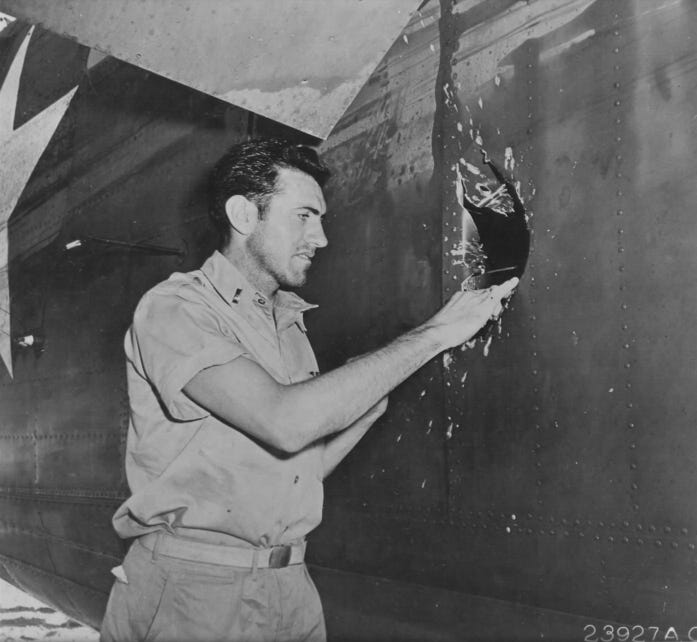How a soldier fought to get back home
A story, quote and lesson about never losing hope
There’s a light at the end of the tunnel.
This phrase is often used to offer hope during tough times. It conjures the image of pushing through a dark, cold, lifeless tunnel toward the warmth of sunlight. But if you had told this to Louis Zamperini in 1943, believing it would have been almost impossible. Five years after participating in the 1936 Olympic Games as a runner in the 5,000-meter race, Zamperini enlisted in the US Army Air Force and earned the commission of Second Lieutenant.
After a successful bombing run in April 1943, his aircraft, the B-24 Liberator bomber Super Man, was severely damaged. Assigned to a search-and-rescue mission in Hawaii, Zamperini and some of his Super Man crewmates were given another B-24, Green Hornet, notorious for being in desperate need of repairs.

On 27 May 1943, while flying above the Pacific Ocean and 850 miles from Oahu, mechanical difficulties caused the bomber to crash into the ocean, killing 8 of the 11 men aboard. The three survivors, Zamperini, pilot Russell Allen Phillips and Francis McNamara faced an insurmountable challenge: survival in the cold, unforgiving waters of the Pacific.
The three men were able to find two small rafts that got released after the plane crash. They subsisted mainly on rainwater and small fish eaten raw that they caught using an albatross’s carcass as bait. They faced storms and shark attacks and were even caught in the line of fire of a Japanese bomber that tried to finish them off.
Sadly, after 33 days at sea, McNamara died. Zamperini and Phillips, weak from the lack of nutrients, tried to hold on. After drifting at sea for another 14 days (47 days total), they finally reached the Marshall Islands but were soon captured by the Japanese Navy who had control of the island.
They were held for two years after being transferred to the Ofuna and Omori camps in mainland Japan. Since they were not officially registered as prisoners of war (POWs), this camp was especially gruesome. Zamperini was constantly beaten, mistreated and tormented, especially by Mutsuhiro “The Bird” Watanabe (who was later classified as a notorious war criminal by General Douglas MacArthur).
“One moment of pain is worth a lifetime of glory.”
- From the movie Unbroken (2014), which focuses on Zamperini’s story
Zamperini's story is remarkable for his unwavering optimism. Fellow prisoners in the camps recalled how he vividly described his mother’s homemade Italian recipes, a tactic he used to distract them from their hardships. He was always finding ways to bring light to their pitch-black situation.
He also knew how to keep his head down and work regardless of the conditions he was in. After watching the movie Unbroken (released in 2014 and based on the book of the same name by Laura Hillenbrand), it is clear that Zamperini’s world view was one-of-a-kind. After facing beatings, starvation and horrible sanitary conditions, Zamperini still found a way to stay positive and to brighten the lives of those around him.
So now I ask you:
What grounds you and pushes you to remain hopeful, even through tough times? What can you do to foster this positivity?
P.S. I highly recommend watching the movie Unbroken (2014). It is a great retelling of Zamperini’s story and world view.



This great article reminded me that one important focus in my life has been to remain positive. I think that positive attracts positive. But a special moment I. My life was the death of my father. My mother was tough enough to get me out of my depressed moment and kept me fighting with the focus that my father did not raised a looser and his image kept me positive to grow up to what would make him proud. And looking backwards, the negative event of his early death in my opinion was the trigger of the man I am today.